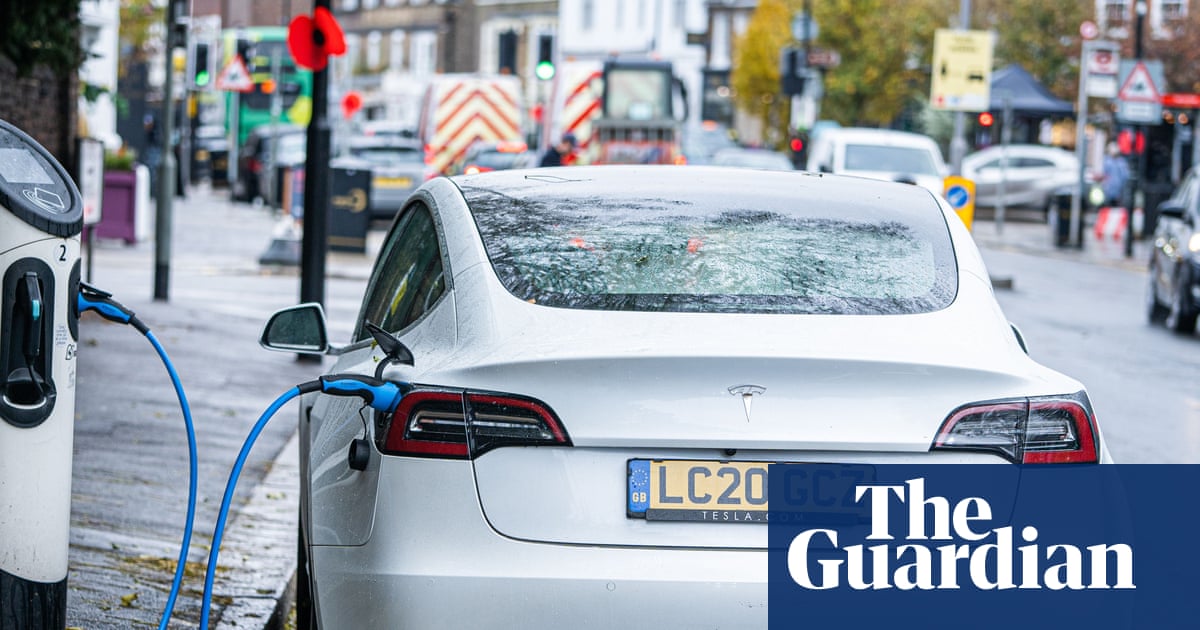Supreme court begins oral arguments in Voting Rights Act case
Oral arguments have started in the case challenging the constitutionality of a redrawn congressional map in Louisiana.
Janai Nelson, the president of the NAACP Legal Defense Fund, kicked things off. She noted that if the map at the center of this case is deemed to be “unsatisfactory”, the proper recourse is to “remand and adopt” one of the many alternative maps that address the section two violation of the earlier map.
Key events Show key events only Please turn on JavaScript to use this feature
Edward Greim, representing the “non-African American” challengers who appealed the 2024 congressional map, is now up.
“It is time to reach a question this court has never reached and hold that section two alone is no compelling interest for racially gerrymandering citizens like the appellees,” Greim said. “The court should affirm and direct the district court to order a remedial map in time for the 2026 elections.”
Aguinaga pushed back against Nelson’s argument that any gutting of section two of the Voting Rights Act would be “catastrophic”.
“I think there’s been a lot of sky is falling rhetoric from the other side in this case,” Aguinaga said. “I’m not I don’t know what our legislature would do if the court rules in our favor … I don’t think the sky is going to fall.”
A post about the possible impact in today’s case. If the supreme court rules to scrap section two of the Voting Rights Act, it could possibly cost House Democrats up to 19 congressional seats, according to a report by two progressive voting rights groups.
“It’s enough to cement one-party control of the U.S. House for at least a generation,” said Fair Fight Action and Black Voters Matter.
In responding to a question by Justice Samuel Alito, the Louisiana solicitor general said that the Black population within Louisiana doesn’t satisfy one of the pre-requisites of the Gingles test – namely that the minority population is geographically compact.
“You can identify pockets of black voters, but they are dispersed across the state there’s no way you can conceive of that population as compact,” Aguinaga said.
An important note here, Louisiana has switched sides since March, the last time the supreme court heard this case.
“We’ve taken the position that section two, insofar as it requires race- based redistricting, is unconstitutional,” Aguinaga said.
Now up is Benjamin Aguinaga, the solicitor general of Louisiana.
“Race-based redistricting is fundamentally contrary to our constitution,” he said in his opening argument, adding that racial stereotypes are a consequence of the practice.
“They assume, for example, that a black voter, simply because he is black, must think like other black voters, share the same interests and prefer the same political candidates, and this stereotyping system has no logical endpoint.”
Justice Sonia Sotomayor asked Nelson to answer the constitutionality question of the maps in question, particularly it relates to the court’s 2023 decision that ruled race-based college admissions violate the Equal Protections Clause of the 14th amendment.
Nelson said that the court “made it clear that it is still constitutional to use race to remedy specified discrimination”.
She noted that decision, from two years ago, is “working more in our favor, we believe, than supporting our opponents”.
Nelson was just asked by Justice Elena Kagan what the consequences would be if the court got rid of section two.
“I think the results would be pretty catastrophic,” Nelson said. She went on to say that many of the Black representatives in Louisiana alone were elected from districts that exist because of the Voting Rights Act.
One particular term we’re hearing a lot about in Nelson’s arguments is the “Gingles Test”, which determines if a minority group is being subjected to voting dilution.
“Gingles is an exacting test. It is data obsessive. It brings in experts and many other forms of evidence to establish a racial violation,” Nelson said.
There are three criteria for a minority group to meet Gingles, which came about after a landmark supreme court decision in 1986. Here’s a breakdown, courtesy of ScotusBlog.
-
The affected minority group is sufficiently large to elect a representative of its choice.
-
The minority group is politically cohesive.
-
The majority votes sufficiently as a bloc to usually defeat the minority group’s preferred candidates.
Kavanaugh restates the court's history on 'race-based remedies'
Justice Brett Kavanaugh explained the court’s stance on “race-based remedies”.
“Race-based remedies are permissible for a period of time, sometimes for a long period of time, decades, in some cases, but that they should not be indefinite and should have a end point,” he said, calling back one of the key points of the ruling in 2023 which ruled the factor of race in college admissions was unlawful.

Sam Levine
There’s lots of questions from the judges right off the bat about Allen v Milligan, a similar section two case from 2023. In that case, the court upheld section two and said Alabama was required to redraw its districts to add a second majority-Black district.
If the court wants to overrule precedent about section two, it would require it to overrule precedent it affirmed just two years ago. There was an ominous question from the chief justice, John Roberts, who is a key vote in the case.
“That case, of course, took the existing precedent as a given,” Roberts said.
Supreme court begins oral arguments in Voting Rights Act case
Oral arguments have started in the case challenging the constitutionality of a redrawn congressional map in Louisiana.
Janai Nelson, the president of the NAACP Legal Defense Fund, kicked things off. She noted that if the map at the center of this case is deemed to be “unsatisfactory”, the proper recourse is to “remand and adopt” one of the many alternative maps that address the section two violation of the earlier map.
Outside the supreme court, several people have gathered to rally in support of section two of the Voting Rights Act, which is at the heart of today’s arguments in front of the justices.
Bessent: 'If China wants to be an unreliable partner, the world will have to decouple'
Scott Bessent has said that there will be a “series of meetings” this week during World Bank IMF week, but emphasized that China is “not only fueling Russia’s war”, but their actions have once again demonstrated the risk of being dependent on them and on rare earths from the country.
“If China wants to be an unreliable partner to the world, then the world will have to decouple. The world does not want to decouple. We want to de risk, but signals like this are signs of decoupling, which we don’t believe China wants,” Bessent added.
Bessent says shutdown could cost the US $15bn a day: 'No kings equal no paychecks'
Scott Bessent, the treasury secretary, is holding a press conference alongside Jamieson Greer, the US trade representative. He just said that the ongoing government shutdown could cost the country $15bn a day.
“I’m calling for the moderate Democrats to be heroes, be heroes, and reopen the government for the American people,” Bessent said. “Maybe it’s after this ‘no kings’ thing, but no kings equal no paychecks.”
A visual representation of the new Louisiana map at the heart of the supreme court case
Here are the Louisiana congressional maps, showing the difference between 2022 and 2024, following a lawsuit which upheld the creation of a second majority-Black district.
My colleague, Sam Levine, has been covering the latest as the supreme court prepares to hear a consequential case, which could inhibit states from considering race as determining factor when drawing district and congressional maps.
Ahead of arguments at the court, in less than an hour, Sam notes the history of the case.
After the 2020 census, Louisiana Republicans passed a congressional map in which Black voters only comprised a majority in one of the state’s six congressional districts. A group of Black voters sued under section two of the Voting Rights Act in March of 2022, arguing that it was possible to draw a reasonably configured district in the Baton Rouge area that would give Black voters a majority in a second-congressional district. A district court judge and US court of appeals for the fith circuit agreed with them, ordering a new map. The supreme court let the map go into effect for the 2024 elections.
Since then, a group of “non-African American” voters brought a lawsuit, claiming the 2024 map, which delivered two Louisiana Democrats to the US House, was an example of racial discrimination. A panel of federal judges ruled in their favor, and the appeal is now before the court today.
You can read more of Sam’s report here:
Government shutdown enters day 15, as Senate schedules another vote to pass funding bill
The Senate will hold its ninth vote, in an attempt to advance a House-passed funding bill to reopen the government, at 2:15pm ET today.
The ongoing shutdown enters its 15th day with no end in sight. Both parties continue to blame the other for the lapse in government funding. While Donald Trump said that he will announce a list of “Democrat programs” that his administration plans to cut on Friday. This comes as more than 4,000 federal employees were laid off last week, as part of the White House budget office’s reduction in force across agencies.
We’re due to hear from Mike Johnson, the Republican House speaker, at 10am ET, and Hakeem Jeffries, the House’s top Democrat, at 11:30am ET.
Donald Trump is in Washington today, but we won’t see him until 3pm ET, when he holds a press conference with Kash Patel, the FBI director, at the White House.
Then, the president will host a ballroom dinner in the East Room at 7:30pm ET.
We’ll bring you the latest lines as it all unfolds.

.png) 1 month ago
40
1 month ago
40

















































